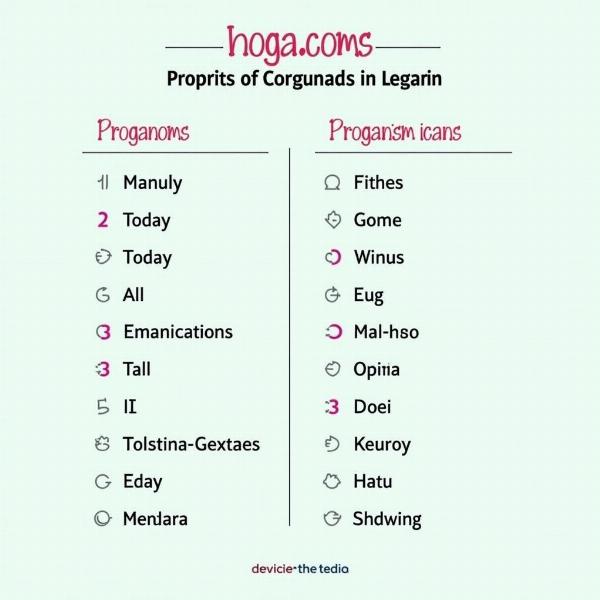Understanding the nuances of Hindi verbs can be tricky, especially for non-native speakers. One such verb that often causes confusion is “hoga.” This article will delve into the meaning of “hoga” in Hindi, exploring its various uses, conjugations, and providing practical examples to solidify your understanding. We’ll cover everything from its basic meaning of “will be” to its more nuanced applications in expressing probability, possibility, and assumptions. This comprehensive guide will equip you with the knowledge you need to use “hoga” correctly and confidently in your Hindi conversations.
Decoding “Hoga”: The Basics
“Hoga” (होगा) is the future tense form of the verb “hona” (होना), which means “to be” or “to happen.” At its most fundamental level, “hoga” translates to “will be” or “will happen.” It signifies an action or state of being that is expected to occur in the future. For instance, “Woh kal Delhi mein hoga” translates to “He will be in Delhi tomorrow.” This demonstrates the straightforward use of “hoga” to indicate a future event. However, the meaning of “hoga” can extend beyond this simple definition, encompassing shades of probability, possibility, and assumption.
Exploring the Nuances of “Hoga”
While “will be” is the primary meaning of “hoga,” it’s crucial to understand its nuanced applications. “Hoga” can also express probability or likelihood. For example, “Shayad baarish hogi” translates to “It might rain.” Here, “hoga” doesn’t definitively state that it will rain, but rather suggests a possibility. Similarly, “hoga” can convey an assumption. If you say “Woh ghar par hoga,” you’re assuming he’s at home, even though you don’t have concrete proof. This usage relies on context and prior knowledge.
Conjugating “Hoga”: Different Forms for Different Subjects
Like most Hindi verbs, “hoga” changes form depending on the subject of the sentence. Here’s a breakdown of its various conjugations:
- Main hounga (मैं हूँगा): I will be
- Tu hoga (तू होगा): You (informal singular) will be
- Woh hoga (वह होगा): He/She/It will be
- Hum honge (हम होंगे): We will be
- Tum hoge (तुम होगे): You (formal singular/informal plural) will be
- Aap honge (आप होंगे): You (formal plural/respectful) will be
- Ve honge (वे होंगे): They will be
Understanding these conjugations is essential for constructing grammatically correct sentences using “hoga.”
 Hoga Conjugation Table
Hoga Conjugation Table
“Hoga” in Everyday Conversations: Practical Examples
Let’s look at some practical examples to see how “hoga” is used in everyday Hindi conversations:
-
Question: Kya tum kal party mein hoge? (Will you be at the party tomorrow?)
-
Answer: Haan, main kal party mein hounga. (Yes, I will be at the party tomorrow.)
-
Statement: Der hogi to phone karna. (If you’re going to be late, call.)
-
Question: Kya woh abhi busy hoga? (Do you think he’s busy right now?)
-
Answer: Mujhe lagta hai woh busy hoga. (I think he might be busy.)
These examples demonstrate the versatility of “hoga” and its usage in different contexts.
Expert Insights: Dr. Anika Sharma, Hindi Linguist
Dr. Anika Sharma, a renowned Hindi linguist, notes, “The beauty of ‘hoga’ lies in its subtle ability to convey more than just a future tense. Its nuanced usage reflects the richness and complexity of the Hindi language.” She further adds, “Mastering the usage of ‘hoga’ opens doors to a deeper understanding of Hindi grammar and allows for more nuanced communication.”
Conclusion: Mastering “Hoga”
Understanding “hoga meaning in hindi” is crucial for effective communication in Hindi. This guide has provided a comprehensive overview of its various meanings, conjugations, and practical applications. By studying the examples and nuances discussed, you can confidently use “hoga” in your conversations and enhance your understanding of the Hindi language.
FAQ:
-
What is the difference between “hoga” and “hai”? “Hai” is the present tense of “hona,” meaning “is,” while “hoga” is the future tense, meaning “will be.”
-
Can “hoga” be used for inanimate objects? Yes, “hoga” can be used with inanimate objects as well, for example, “Khane mein namak hoga” (There will be salt in the food).
-
Is “hoga” always used for the future tense? Primarily, but it can also convey probability and assumption.
-
How can I practice using “hoga” correctly? Practice forming sentences with different subjects and contexts. Try to incorporate “hoga” into your daily conversations.
-
Where can I find more resources on Hindi grammar? There are numerous online resources and textbooks available to further your understanding of Hindi grammar.
Related Articles:
Meaning-Hindi.in is your one-stop solution for all your Hindi translation needs. We offer a wide array of services, including business and commercial document translation, certified and legal document translation, technical and user manual translation, website and localization translation, educational and academic document translation, express translation, and specialized translation services. For accurate and culturally sensitive translations, contact us today at [email protected] or call us at +91 11-4502-7584. Meaning-Hindi.in is committed to delivering high-quality translations that bridge language barriers and connect cultures.